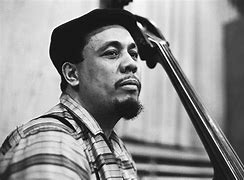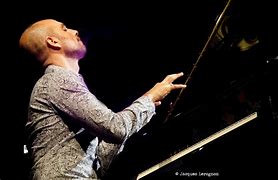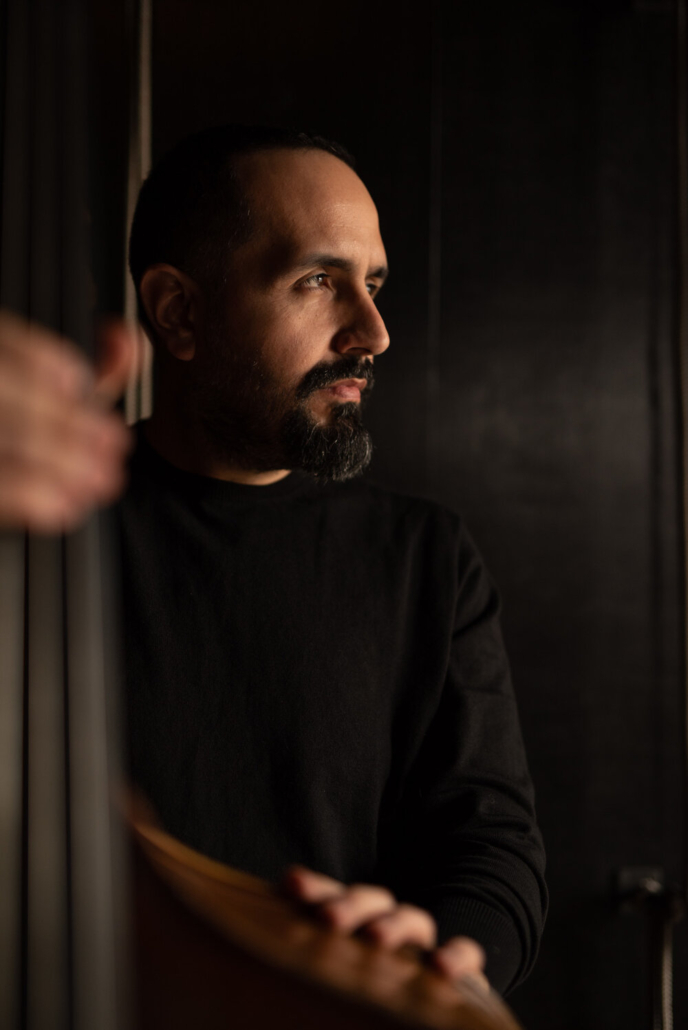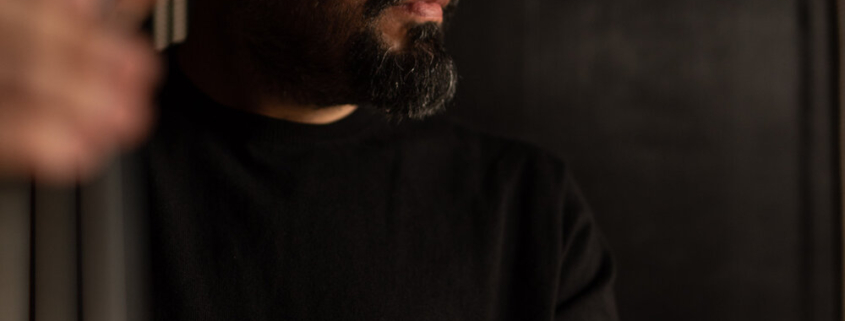JAZZ: THE GIFT THAT KEEPS ON GIVING
JAZZ: THE GIFT THAT KEEPS ON GIVING
by Norman Warwick
There are plenty of songs, from various genres, that urge us to Consider The Source. In whatever format it is offered, by sages such as Jools Holland, Ramsey Lewis or Steve Wynn, I always consider the phrase to be wise advice worth following. Never do I adhere more closely to those words than when selecting new music. I trust my own judgement, of course, but from the teenage days when I would read Tobler or Charles Shar Murray and pop down to the record shop to purchase their recommendations, I have always made note of writers I can trust to advise me on the music I should love. Al Moir, Bob Harris, Pete O´Brien, Dave Espin, Ian Johnson and John Graeme Livingstone, Graham Marshall, Dr. Joe Dawson, Steve Bewick and Michael Higgins will always have my undying gratitude.
I have said before on these pages that there can be few genres of music better served by the media than is jazz. An array of wonderful magazines we regularly allude to here, such as Jazz In Europe, Jazz Times, Jazzed and Jazziz and listing services such as Jazz In Reading and newsletters from the likes of Ribble Jazz And Blues Festival, and between them they (often share) a host of excellently informed and informative writers. There is the radio media, too, that supports jazz, such as Steve Bewick´s Hot Biscuits radio programme at www.fc-radio.co.uk and the clearly-loving-his-job Jamie Cullum on BBC Radio 2. I have also recently come to read and to trust Dan Bilawsky, who I now know has been involved in jazz journalism for fifteen years. His work has appeared in JazzTimes, JAZZed, and All About Jazz, among other outlets. In addition, he’s penned liner notes for artists on Red, Capri, HighNote/Savant, Ropeadope, and other respected imprints. A band director with two decades of teaching experience, Bilawsky holds degrees in music from Indiana University, the Aaron Copland School of Music at Queens College, and Five Towns College.
´I tend to flow with what feels right in the moment´, Jorge Roeder told Dan Bilawsky at Jazz Times earlier this year, in a comment that many other bass players might like to have carved into their headstones. In Roeder´s case, though it undoubtedly reflects on some pivotal moves in his life, it perhaps also reflects his acknowledgment of his own overarching philosophy for his work.

´With an unerring ear, quick reflexes, an exacting sense of rhythm, and a virtuosic streak veiled by its conversational nature´, Bilawsky suggests, ´Roeder is nothing if not purely present. Leveraging that high level of focus, he’s become one of the premier bassists on the scene while bolstering bands led by guitarist Julian Lage, pianist Shai Maestro, trombonist Ryan Keberle, saxophonist John Zorn, and numerous others. Each person who calls on Roeder is, no doubt, attracted to something slightly different in his musical makeup, but the broad appeal, as boiled down by Lage, surrounds one simple notion: ´People play the best they play when they’re with Jorge. Roeder.´(left)

Roeder’s skill set was obviously complete enough, in a rounded fashion, to propel him to musical prominence. However, when he was growing up in Lima, Peru, (right) that wasn’t even a thought.
´I didn’t have a really musical family or any particular inclination to pursue music´, he confesses. ´But both of my parents played a little guitar—they could strum a few chords—so they decided to get guitar lessons for me and my two older sisters.”
His siblings kept up with it for about two weeks, but as the youngest of the brood at eight years old, Roeder persisted.
´I didn’t want to disappoint anybody´, he told his interviewer. ´Also, being so young, I didn’t realize I could quit!´
After switching guitar teachers, he began to get the idea that he might have a gift:
´My teacher came over to talk to my parents about perfect pitch. He explained that I had it and that I should seriously consider a career in music´.
Still a way off from working life, Roeder wasn’t fully convinced, and the concept of improvisation frightened him. Yet a seed was planted that day, and it steadily grew in the years that followed. When his high school instituted a substantial music program, Roeder took up the cello and excelled. Then, as a senior, he made the move to the instrument he’d really been eyeing—the double bass.

While boning up on his classical studies, this budding musician started branching out in other directions. Having taken up electric bass at 14, Roeder soon became a fixture in local rock and metal circles. And he experienced a series of epiphanies on the brink of adulthood—encountering Dizzy Gillespie and Charlie Parker’s music on a bootleg cassette, coming under the wing of trumpeter/educator Gabriel Alegría, experiencing the profundity of Charles Mingus (left) via a television commercial—that cemented his intentions to pursue jazz. As fate would have it, while Roeder was attending the 2002 IAJE Conference to perform with one of Alegría’s ensembles, Ken Schaphorst, chair of jazz studies at the New England Conservatory, heard him play and invited him to audition for the school. After seeing that offer through to success, he prepared for the next stage in his development.

Moving to Boston in the fall of ’02, Roeder began to seriously hone his craft while forging strong musical partnerships with the likes of vocalist Sofia Rei, pianist Dan Tepfer, saxophonist Dan Blake, and drummer Richie Barshay, among others. When it came time to make the move to New York in 2007, he was poised and ready. Roeder quickly found his footing in Brooklyn, but he’d already found two of his most significant future collaborators thousands of miles away. During a quick stop at the Stanford Jazz Workshop in 2005,
Roeder first met and jammed with Lage. And while back in Peru for a visit the following year, he was introduced to Shai Maestro.(right)
Both of those men would eventually bring Roeder into their respective circles, forming relationships that endure to this day. In February of 2020—a month after exploring his roots, influences, and experiences as an immigrant by recording his own stunning solo bass debut, El Suelo Mío—Roeder flew to the South of France to work on Human, Maestro’s sophomore release for the ECM imprint. And after two cancellations—one due to a pinched nerve in the bassist’s cervical vertebrae, the other brought on by the COVID-19 lockdown—he made a pilgrimage to Nashville to take part in the sessions for Lage’s first effort for Blue Note. Both records have the potential to significantly raise Roeder’s profile in the jazz community. But as Lage points out, his standing is already remarkably high in the eyes of his admirers and colleagues:
´What’s notable for anyone who sees Jorge Roeder of or hears him is that he does everything with such love and care and warmth … and risk! Jorge is a catalyst for great music-making and has a definitive voice as a musician. He’s a star´.
The prime source for this article was a piece written by Dan Bilawsky for Jazz Times
In our occasional re-postings Sidetracks And Detours are confident that we are not only sharing with our readers excellent articles written by experts but are also pointing to informed and informative sites readers will re-visit time and again. Of course, we feel sure our readers will also return to our daily not-for-profit knowing that we seek to provide core original material whilst sometimes spotlighting the best pieces from elsewhere, as we engage with genres and practitioners along all the sidetracks & detours we take.





Leave a Reply
Want to join the discussion?Feel free to contribute!